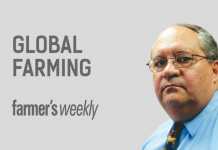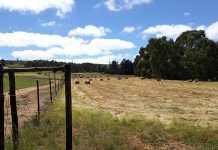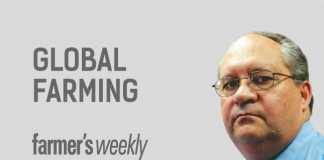Prices of farm requisites have increased sharply since 2010. According to the National Agricultural Marketing Council (NAMC), the price of MAP increased by 190% between 1997 and 2011, urea by 283% and potassium chloride by 382%.
According to the department of agriculture’s farm requisite price index, fertiliser prices increased by an average of 16,2% annually from January 2008 to January 2012, feed by 14,2 annually and machinery and equipment by 13,4% annually from January 2008 to January 2012. Further price increases have occurred since January. Diesel prices in Gauteng are 11% higher than in July 2011 and 34% up on July 2010. At the end of June the Safex maize price was 14% lower than in January.
Weakening terms
According to the department of agriculture, the average price of agricultural products grew by 4,4% a year from 2008, field crops by 1%, horticultural products by 7,3% and livestock products by 5,3%. Product prices grew on average by 2,4% annually from 1970. Producer prices are more volatile than input prices.
The calculated terms of trade for field crops, horticultural products and livestock products are shown in Figure 1. The terms of trade for all three categories have deteriorated over time. The terms of trade for field crops show the greatest volatility and livestock products the lowest. Input prices increase at a rate faster than product prices. The prices of field crops – and thus also their relative profitability – are more volatile than those of horticultural and livestock products.

Terms of trade for agricultural products between January 2000 and January 2012. Base 2000 = 100.
Implications
Weakening terms of trade in agriculture are nothing new. It’s also a global phenomenon. Farmers’ margins are always under pressure. When farmers experience a short period where product prices are high and input prices haven’t yet caught up, they must realise it’s inevitable that input prices will catch up.
Input suppliers often use higher product prices as a signal to increase input prices in the belief that farmers will be able to afford it. Farmers can limit the effect of weakening terms of trade by ensuring that they receive the highest possible product price and pay the lowest possible input price. Farmer-controlled businesses that expand the farmer’s role in the value chain is one way to do this. Technical efficiency and the use of biological farming methods are also proven methods of saving on inputs.
The combining of crop and livestock production is good too. As livestock prices are generally less volatile and as livestock production is usually more stable, the combination decreases a farmer’s total risk. Farmers will have to accept weakening terms of trade as a fact of life and include it in their strategic planning. Those who ignore it and keep farming exactly the same way they farmed last year, will soon find that their income is dwindling.
Dr Koos Coetzee is an agricultural economist at the MPO. All opinions expressed are his own and don’t reflect MPO policy. Contact Dr Coetzee at [email protected]. Please state ‘Global farming’ in the subject line of your email.



